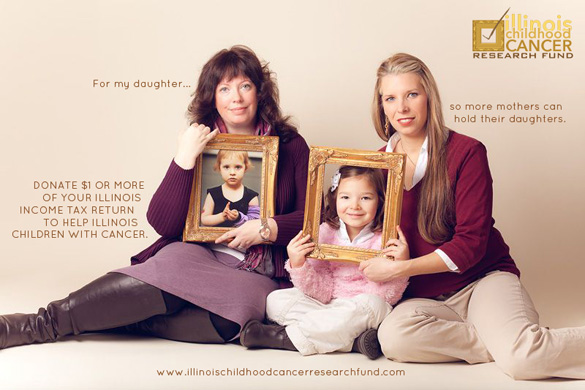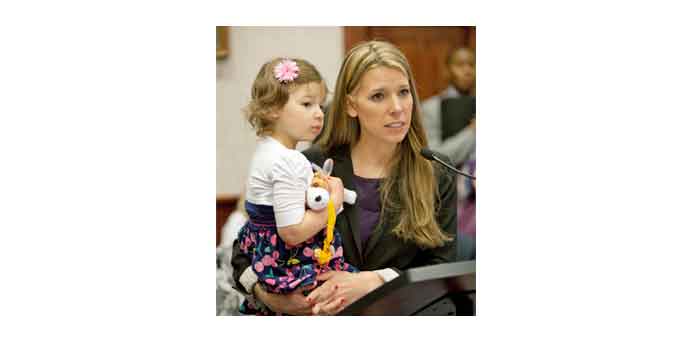Want to help cure childhood cancer? Do your taxes.
It’s as easy as that, thanks to the efforts of two Chicago area mothers, The Illinois Childhood Cancer Research Fund (ICCRF) can now collect donations through the state income tax filing form.
Laura Lutarewych (pictured above) and Sheila Quirke (aka Mary Tyler Mom) represent both ends of the devastating spectrum that is childhood cancer. Laura’s daughter, Atia, survived her bout with cancer while Sheila’s daughter, Donna, did not. Both want to see better, stronger efforts into pediatric cancer research.
Together, they lobbied state legislators last year to include the ICCRF on the list of organizations and funds to which Illinois residents can donate a portion or all of their tax refund.
How is the fund different from any other cancer-related charity or organization? Simply, it’s not one. The fund is just that—a repository for financial donations, 100 percent of which go directly to fund pediatric cancer research here in the state of Illinois.
“The ICCRF is not formalized in any way,” Lutarewych says. “We’re a 100 percent grassroots organization. We’re nothing more than a voice getting the word out.”
“They (researchers) all have an equal opportunity to benefit from this funding,” Quirke says. “The money goes directly into a piggy bank (at the Dept. of Public Health). Research labs put together grant proposals.”
From there, an advisory board within the department would then be responsible for approving research grants.
The goal for Lutarewych and Quirke? To make sure the Fund raises the necessary $100,000 it takes to keep the ICCRF on the donation schedule next year. Lutarewych is excited at the prospect of an ongoing fund that ultimately could ripple into other states, too. And with current federal research funding levels for childhood cancers at the National Cancer Institute at only 4 percent of its entire budget, it’s localized efforts such as these that can make a difference.
“We’re not relying on the government anymore, were relying on people,” Lutarewych says.
Every day, 36 children are diagnosed with cancer. The average age at diagnosis? 6.
- Cancer is the #1 killer of children in the U.S.
- Half of all chemotherapies used for children’s cancers are over 25 years old
The mission is personal for both Lutarewych, herself a cancer survivor and mother to 5-year-old Atia, who is now in remission after two-and-a-half years of chemo treatments for ALL—Acute Lymphoblastic Leukemia; and for Quirke, whose daughter Donna succumbed to papillary meningioma after 33 months of aggressive treatment. The need for research specific to childhood cancer was most eloquently established during Quirke’s testimony in Springfield last year:
“Her treatment team, lead by Dr. Stewart Goldman, had no roadmap to guide them. There was no protocol for them to consult. Every single treatment decision that was made was a shot in the dark, an educated guess, a hope, and a wish. The thing that failed Donna was the science. Her cancer was simply better equipped than her doctors.”
So what can you do? It’s easy—talk to your accountant while you are doing your taxes, or if you complete them yourself, look for Schedule G to make a donation. You can find out more at the ICCRF website.


